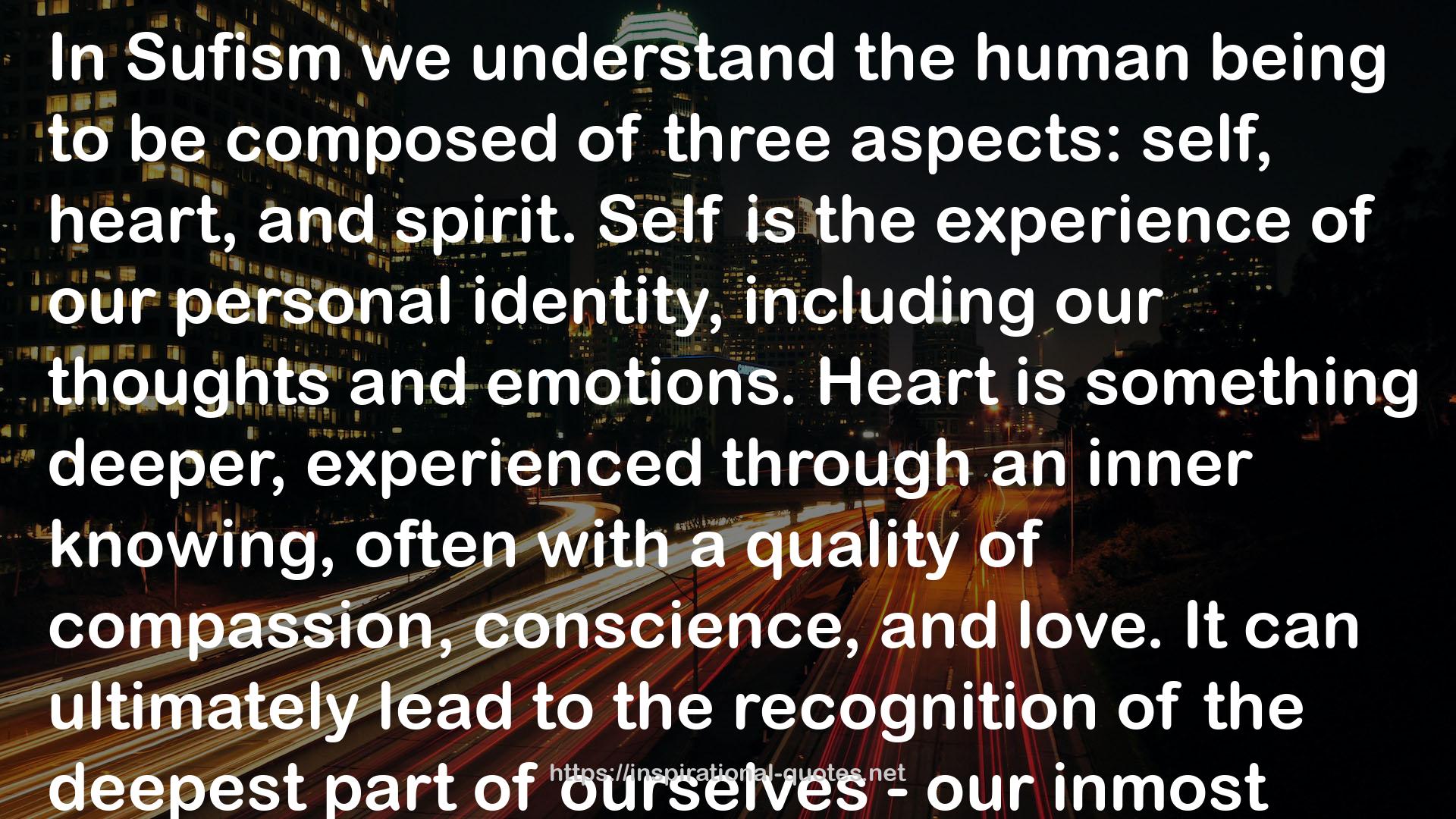" In Sufism we understand the human being to be composed of three aspects: self, heart, and spirit. Self is the experience of our personal identity, including our thoughts and emotions. Heart is something deeper, experienced through an inner knowing, often with a quality of compassion, conscience, and love. It can ultimately lead to the recognition of the deepest part of ourselves - our inmost consciousness, or Spirit, the reflection of God within us.
If we simply say that soul is our inner being, then the quality of our inner being, or soul, is the result of the relationship between self and our innermost consciousness, Spirit. The self without the presence of spirit is merely ego, the false mask, which is governed by self-centered thoughts and emotions. The more the self becomes infused with spirit, the more „soulful“ it becomes. We use the words presence and remembrance to describe the conscious connection between self and Spirit. The more we live mindfully with presence, the more we remember God, and the more soulful we are, the more we drop the mask.
Care of the soul, then, is always the cultivation of presence and remembrance. Presence includes all the ways we mindfully attend to our lives. Soul is the child of the union of self and spirit. When this union has matured, the soul acquires substance and structure. That is why it is said in some teachings that we do not automatically have a soul; we must acquire one through our spiritual work. (p. 75) "
― Kabir Helminski , Living Presence: A Sufi Way to Mindfulness & the Essential Self
